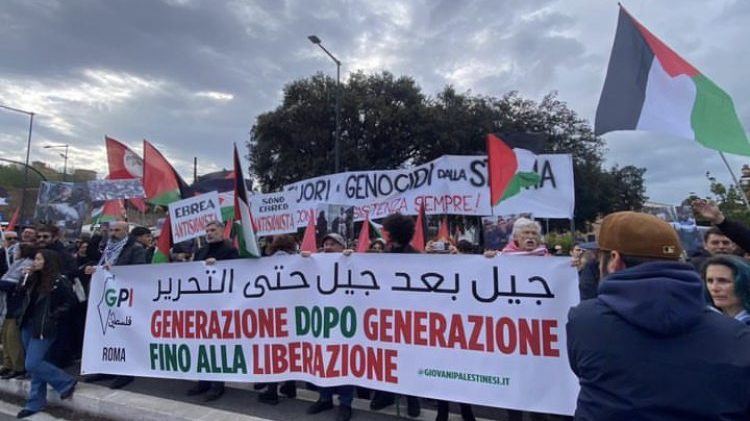Dozens of cities and towns across Italy commemorated Liberation Day on April 25, reflecting on the historical struggle against fascism in the region. This anniversary serves not only as a day of a remembrance but also as a call to action against contemporary forms of oppression and revisionism – or at least it should. Amid calls for solidarity and peace issued ahead of the day itself, the demonstrations were held in a context of high-strung tension as the government led by Giorgia Meloni embraced policies perceived by most as a nod to Italy’s darkest times.
Liberation Day not only marks the defeat of Nazi occupation and the disbanding of fascist structures that plagued Italy for two decades, but also honors the contributions made by thousands of resistance members to such liberation. Groups like Potere al Popolo underscored the importance of keeping the memory of the anti-fascist resistance alive and active, urging people to join the demonstrations to oppose all forms of oppression and the erasure of popular struggles from public memory.
Today, there is little doubt that the importance of Liberation Day within contemporary politics is more pronounced than ever. The stance of many of Meloni’s ministers on the day as being “divisive” overlooks its potential for social mobilization for justice, focusing instead on policies that degrade human dignity through low wages, unsafe work conditions, and weakened social services.
Read more: Massive demonstration in Rome calls for ceasefire in Gaza
In the weeks leading up to Liberation Day, the discourse within government circles stirred uneasiness. Several ministers indirectly challenged the day’s significance, continuing to push for policies that seem to undermine the foundational values of the republic. The National Association of Partisans of Italy (ANPI) has been open in its criticism of this, accusing the government of endangering not only economic but also social rights, betraying a legacy which honored the working class and repudiated war.
Instead of recalling this legacy, the current right-wing government prefers a memory “that has its roots in the 20-year fascist era and its nostalgia,” ANPI wrote.
Another point of contention was the position of the government and some of the more conservative groups involved in preparing for the Liberation Day demonstrations, with regards to the ongoing Israeli war on Gaza. The Meloni government continues to support Israel in its attacks against the people of Palestine, including through the export of arms. Moreover, many organizers of the central event in Milan did not draw a parallel between the resistance movements in World War II Europe and those in the occupied Palestinian territories today.
Yet, the feeling among those in the streets is very different, with a strong presence of pro-Palestine groups in the mobilizations leading up to April 25. Today’s liberation is bound to be both anti-zionist and anti-fascist, many of the groups calling for mobilizations stated – most prominently students’ associations and Potere al Popolo.
Read more: Italian students challenge universities for their complicity in Israel’s crimes
“The Palestinian resistance teaches us that the times of struggle may be long, but transformation is inevitable for those who refuse to accept the barbarity of radical injustice and oppression,” stated Potere al Popolo. This sentiment encapsulates the spirit of April 25 as more than a commemoration—it’s a renewal of commitment to fight against all forms of oppression.
“To be a partisan means to take part. Taking to the streets on April 25 is to fight against war and genocide in Palestine and for the freedom of oppressed peoples everywhere,” the group declared.
With another Liberation Day celebrated, the challenge for Italy remains to engage with lessons of the resistance in the present. As pro-war rhetoric in Europe grows stronger by the day, Liberation Day’s messages of peace and unity are more relevant than ever. They serve as a reminder that the fight against oppression, in any form, is far from over and that the values incorporated in Europe’s resistance movements are as vital today as they were in the late 1940s.





